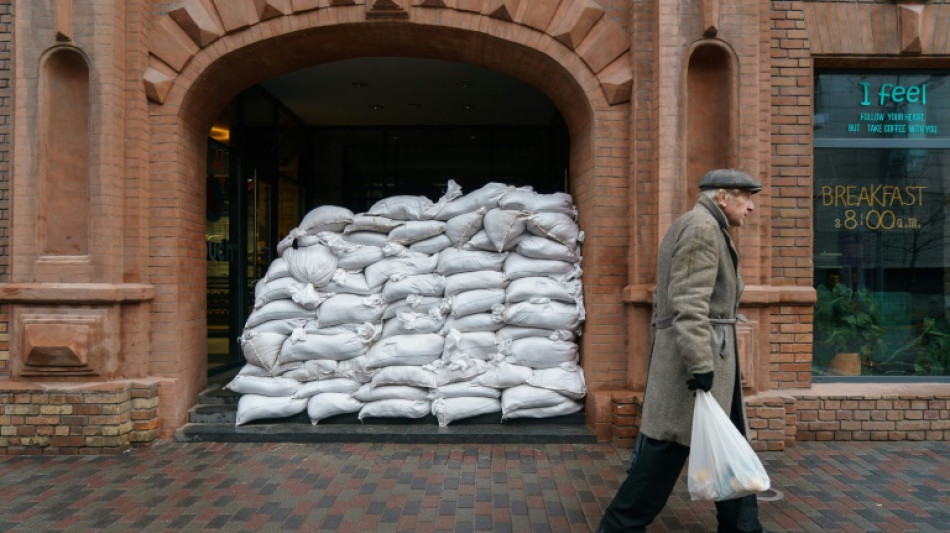
Molotovs and sandbags: Ukraine city braces for Russian attack

Shovelling sand into bags and collecting bottles to make Molotov cocktails, volunteers in the Ukrainian city of Dnipro are preparing for an onslaught from invading Russian troops.
The industrial hub, which sits on the western side of the Dnieper river that divides east and central Ukraine, is yet to experience Russian attacks of the intensity seen in other cities, such as the capital Kyiv and Kharkiv in the northeast.
As a result, a small army of civilian volunteers have mobilised.
A group of female volunteers were working together this week to grind down polystyrene to make Molotov cocktails to "throw at tanks", said 19-year-old Vale, who was helping to coordinate the effort.
The women were also collecting bottles and gasoline to make the improvised incendiary weapons, said Vale.
In the early hours after the Russian invasion that began one week ago, a group of volunteers was set up to oversee the distribution of humanitarian supplies to those in need.
It has since been registered legally as a charitable fund with the government.
The group receives donations of money and supplies from across the country and via an Instagram account.
On Wednesday, they launched a dollar account so they can accept international donations.
- 'Clothes, beds, mattresses' -
As well as 200 vehicles for distribution, they have 600 volunteers and 20 coordinators, said co-founders Yulia Dmytrova, 35, deputy director of social policy at the city council.
"We need clothes, beds, mattresses, military uniforms," said Dmytrova at their nerve centre on the banks of the river, a new location set up on Wednesday after the previous one became a security risk.
As well as coordinating help to other regions, Dnipro's relative safety is making it an appealing destination for those who have been forced to flee their homes.
The entry of Russian forces into Ukraine last week has precipitated a massive wave of displacement.
One million refugees have fled abroad in the week since Russia's invasion, according to the UN refugee agency, with neighbouring Poland, Hungary and Moldova the main recipients.
Meanwhile, in Dnipro, nurseries, shops and hotels are doing their bit by hosting displaced families from cities such as Kharkiv, 200 kilometres (120 miles) to the north.
With a population of 1.4 million people and perched on the border with Russia, Kharkiv has been under sustained Russian attack for several days.
The city that is Ukraine's second largest after Kyiv has born the brunt of Russian fire power in recent days, with initial strikes devastating a central administrative building.
The attack was denounced by President Volodymyr Zelensky as a "war crime".
A.Little--TNT